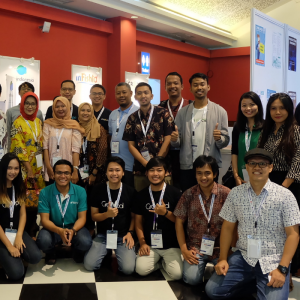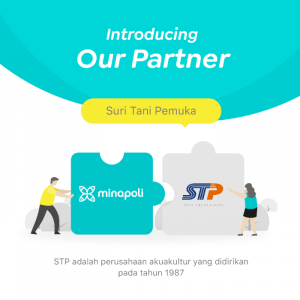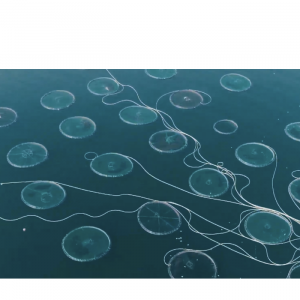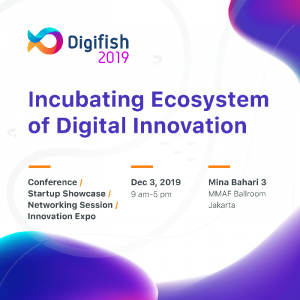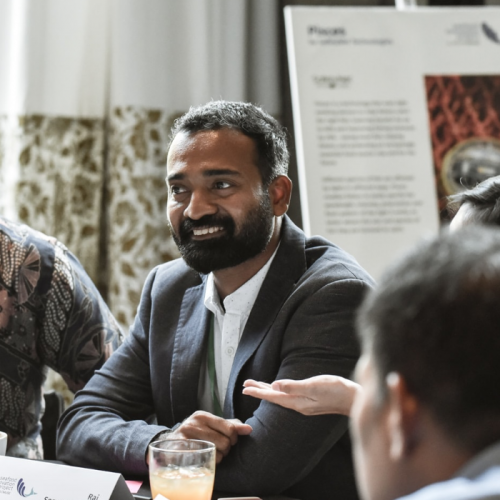
How AI is Helping This IIT Alumnus Who Has Pledged to Save The Aquaculture in India
| Mon, 23 Sep 2019 - 11:50
The demand for seafood in India is growing faster than ever and consumers are becoming more interested in the nutritional advantages of their food choices. As maintaining ocean health and wild fish stocks is becoming a major concern, it is becoming increasingly important to take care of the aqua community.
Indian aquaculture is a $7 billion worth industry and only a handful of technology startups are working on this domain in India. Rajamanohar Somasundaram, an IIT Alumnus, is taking the lead in the aquaculture industry where he is using the power of IT, artificial intelligence and IoT skills to get a profound impact on the industry. Using these technologies he has been able to positively impact the lives of 3,000 aqua farmers in coastal India and is now planning to expand internationally to run pilots in Aceh and Sulawesi by the end of 2020.
Analytics India Magazine got in touch with Somasundaram to get an inside view on how he is promoting sustainable fish and shrimp farming using AI. Founded in 2017, Aquaconnect is a full-stack aquaculture technology venture that offers data-driven farm advisory solutions and market place solutions to Shrimp and Fish farmers. They have an AI-powered farm advisor tool FarmMOJO, that is helping farmers to enhance their farm productivity.
Analytics India Magazine: Please tell us about your initiative Aqua Connects and how did it come into existence?
Rajamanohar Somasundaram: It was a serendipitous meeting with a shrimp farmer, Sanjai that sparked the idea of Aquaconnect. During the conversation with him, I got to learn about the shrimp farming industry and its challenges such as high production cost and diseases outbreaks.
With further research, I learned that Aquaculture in India has evolved as a viable commercial farming practice and has been showing an impressive annual growth rate of 10-15% every year. The industry exports are valued at around 7 billion USD in 2018. India stands top on shrimp production and it contributes 70% of Indian aquaculture export value.
Though it is a 7 billion dollar industry, it still lacks the technology adoption and efficiency it is expected to have. Around 2 million rural farmers and coastal communities depend on shrimp & fish aquaculture, where traditional farming practices prevents them in achieving production efficiency and diseases prediction.
Having founded 3 technology ventures in past, I sensed an opportunity to use artificial intelligence technology to help solve the fish & shrimp farmer’s problems. My research pointed to the fact that a lack of data-driven farming is one of the biggest challenges yet to be addressed by the industry to achieve sustainability.
I started Aquaconnect with Sanjai and Shanmugam with a goal to promote a pioneer Indian full-stack aquaculture technology company that promotes the data-driven farming practice. Our data-driven marketplace helps aqua farmers to connect with the upstream and downstream supply chain in the aqua industry.
AIM: How has artificial intelligence helped in achieving your goal of positively impacting aqua farmers in a coastal area?
RS: It has impacted us in 3 key areas:
Impact on aqua farmers: AI helps farmers in various aqua farming activities such as decision making, production planning, disease prevention and growth management. And AI unleashes the real potential of farm data and encourages farmers to practice data-driven farming. Our AI advisory gives transparency in farming activity and advisory to regulate and control the operational cost.
Feed usage optimisation: Often, unregulated feeding results in high production cost and put pressure on limited resources. Feed constitutes about 70% of the production cost and it is necessary to optimize the feed usage to achieve efficiency and control cost. Growth of the animal depends on the right feed usage. Bringing feeding efficiency can help farmers to have better returns from their farms. Artificial intelligence regulates feed usage by analysing the data from the pond level and creates patterns to avoid feed waste and ensures the right quantities. FarmMOJO’s AI helps farmers to reduce 10% feed cost through its feed efficiency model.
Further, farm care ML algorithm analyzes the performance of competitive farm care products on the ground (Feed, Probiotics, Minerals) and based on their past performance it provides a personalized recommendation to the farmers.
Disease prediction and prevention: Implementing AI technologies in aquaculture make possible for aqua farmers to detect diseases well in advance and take preventive measures to secure the animals. We have built a disease prevention model call “Morby-mass” that involves reducing the occurrences of diseases. During the pilot, FarmMOJO predicted the diseases in over 120 pounds and helped farmers to take corrective actions and also minimize the losses.
AIM: What are the AI tools and technologies that you use for your workings?
RS: We use FarmMOJO AI technologies, frameworks such as TensorFlow, languages like Python, libraries such as NumPy, sci-kit-learn and algorithms such as linear regression, random forest, kNN, K-Means.
AIM: Where are the various data points collected from? What is the kind of data that you work with?
RS: We collect farm-level data such as pond size, stocking species and stocked volume. And also pond level data such as feed inputs, water quality parameters, and animal health status at regular intervals. This data helps us create feed efficiency model, growth model and disease prediction models. Collected data will be analysed with our feed efficiency AI models to understand animal performance with respect to various factors. Based on the AI module analysis, FarmMOJO gives a comprehensive report on pond operations and suggests relevant products to be used.
AIM: Please elaborate on the problem statement that you are aiming to solve highlighting how AI is used in the process. Please elaborate on the AI use case.
RS: The Fish and shrimp farmers have been facing several problems such as high costs in unscientific farming practice, constant monitoring of water quality, feed intake, identifying anomalies and biomass conversion. Poor biomass conversion and disease management are some of the major concerns of the industry that has not been addressed yet. Also, the lack of data and data-analytics driven decision has a negative impact on production efficiency, traceability and disease management.
Therefore, a need for the technology that enables AI-driven real-time analysis and promotes sustainable farming to achieve production efficiency, predict diseases and traceability. To address these challenges we have built AI models that analyse the pond level data continuously such as morby-mass model, pond Health Monitoring model, healthcare management model, growth Prediction Model and feed optimization model. They have helped in detection and reporting issues at an early stage.
AIM: Please tell us about FarmMOJO and how it works?
RS: FarmMOJO, an AI-based mobile farm advisor, record and monitors the real-time production data gathered from the farms through the mobile application interface. Collected data will be analyzed in real-time and our prediction model uses the deep learning algorithm to provide context-sensitive suggestions and alerts to improve the water quality parameters, feed consumption pattern and health management. FarmMOJO understands the farmer’s needs inherently based on the input given by the farmer as well as the data captured by the IoT/Smart farm management platforms.
FarmMOJO alerts the farmers about parameters which are not in optimal levels. For instance, at any point MOJO observes poor Feed Conversion Ratio (FCR), it will suggest the necessary actions and relevant product to be used to normalize the pond environment to boosts FCR. It simplifies the farm operations for the farmer and improves efficiency, predictability, and transparency.
With FarmMOJO’s data intelligence and location-aware capabilities, we connect farmers with up-streams (Processors, Certifying bodies) and downstream ( Hatcheries, Feed and healthcare) of the aquaculture supply chain.
AIM: How is the reach of aqua connects? What are the various places/clients where it is being used?
RS: Currently, Aquaconnect works with 3000 farmers in various states of India ie., Tamil Nadu, Andhra Pradesh & Gujarat. We have implemented our FarmMOJO application for 1900 pounds in a short period of 9 months. We are piloting our solution in Sulawesi, Indonesia.
AIM: What is your roadmap from Aqua connects in the coming future? What are some of the goals you wish to accomplish?
RS: We are aiming to further expand into three states — Tamil Nadu, Andhra Pradesh and Gujarat, deploy FarmMOJO in 8000 ponds and increase the operating revenue to 400%. We also aim to increase our strategic partnerships to positively impact aquaculture production. We also plan to establish our presence in Indonesia by the end of the year.
With FarmMOJO’s data intelligence, Aquaconnect aims to create a data-driven marketplace for Indian aqua Industry by connecting stakeholders under one umbrella. We are striving to create financial and insurance products for the aquaculture industry so that farmers can access farmer financial products and insurance coverage for farming activities.
AIM: What have been some of the challenges in adopting AI into your project?
RS: Some of the challenges we faced were farm data collection and integrity of the data, the steeps technology learning curve, cost of technology adoption, availability of large data sets and data integrity is one of the critical aspects for any successful AI project. Due to low technology adoption among Indian farmers, we found the data collection very challenging in the initial days. It costs time, effort and capital for us to bring awareness among farmers and train them on FarmMOJO.
Source : Analytics India Magazine













